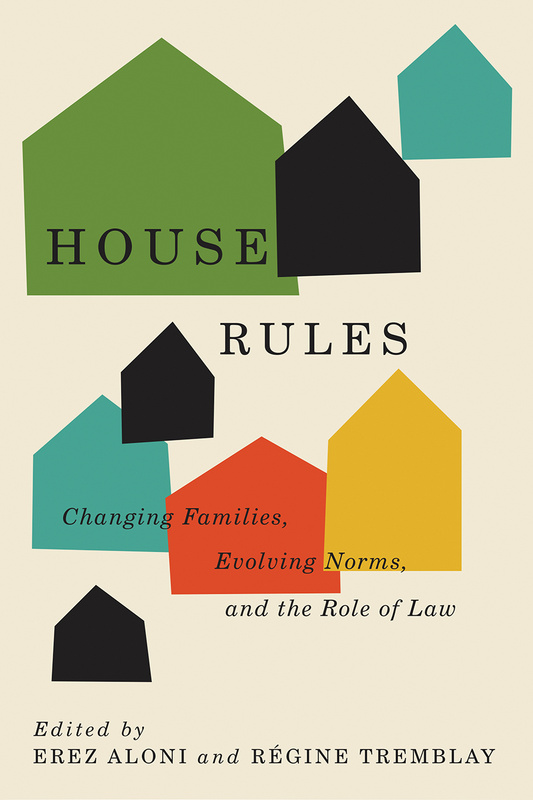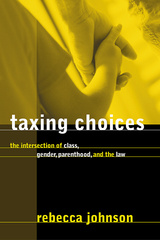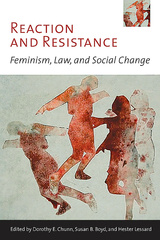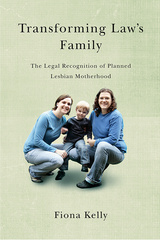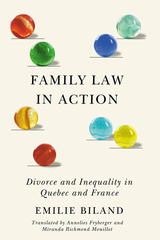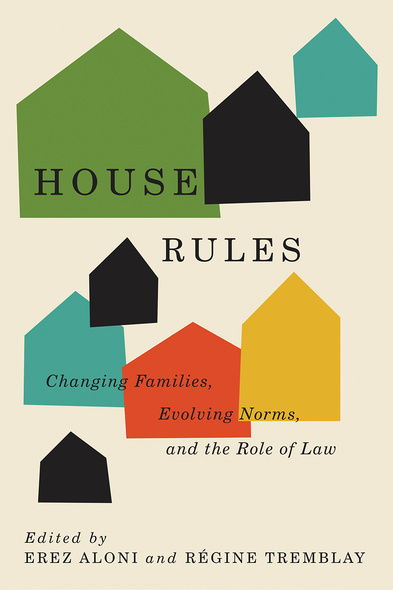
House Rules
Changing Families, Evolving Norms, and the Role of the Law
The paradigm of family has shifted rapidly and dramatically, from nuclear unit to diverse constellations of intimacy. At the same time, some norms resist change, such as women’s continuing role as primary care providers despite their increased uptake of paid work. This tension between transformation and stasis in family arrangements has an impact on economic, emotional, and legal aspects of daily life.
House Rules critically explores the intertwining of norms and laws that govern familial relationships. The authors in this incisive collection engage with four countries – Canada, the United States, the United Kingdom, and Taiwan – and expose the ingrained and unsettled norms that affect families and the law’s role in regulating them. They reveal the assumptions that create inequality and animate legislation, evaluating the effects of laws and scrutinizing reforms.
Over recent decades, the law has struggled to adjust to transformations in what typifies the structures and practices of family life. House Rules provides tools to analyze those difficulties and, ultimately, to design laws to better respond to ongoing change and avoid entrenching inequalities.
Family law scholars, gender studies and feminist scholars, and sociologists of the family will all find this a valuable and informative work.
This volume is much needed, offering a diverse set of scholars writing on the most pressing issues of our time for Canadian families.
Erez Aloni is an associate professor in the Peter A. Allard School of Law at the University of British Columbia. His work has appeared in publications such as the UCLA Law Review, the Harvard Journal of Law and Gender, the National Taiwan University Law Review, the Washington Law Review, and the Oxford Encyclopedia of LGBT Politics and Policy. With Régine Tremblay, he is the faculty coeditor of the Canadian Journal of Family Law.
Régine Tremblay is an assistant professor and the director of the Centre for Feminist Legal Studies at the Peter A. Allard School of Law at the University of British Columbia. She is a member of the Quebec Bar and her work has appeared in English and French in publications such as the Supreme Court Law Review, the Canadian Journal of Family Law, and the Canadian Journal of Women and the Law. She coauthored the second edition of the Private Law Dictionary and Bilingual Lexicon – Family/Dictionnaire de droit privé et lexiques bilingues – Les familles and coedited Les intraduisibles en droit civil. With Erez Aloni, she is faculty coeditor of the Canadian Journal of Family Law.
Contributors: Nicola Barker, Hélène Belleau, Chao-Ju Chen, Brenda Cossman, Alison Diduck, Julianna Ivanyi, Allison Anna Tait, Rachel Treloar, Adam Vanzella-Yang, Wanda Wiegers
Preface
Introduction / Erez Aloni and Régine Tremblay
Part 1: Locating Norms
1 The Private Lives of High-Wealth Families / Allison Anna Tait
2 Identity Choices at the Intersections: The Inequality of Cross-Border Motherhood and What to Do about It / Chao-ju Chen
Part 2: Law’s Norms
3 Family Law as Expression: Financial Relief in the English Courts / Alison Diduck
4 The Complex Interrelationships of Financial and Child-Related Issues in Post-separation Disputes: Gender Matters / Rachel Treloar
Part 3: Norms’ Stickiness
5 Familial Ideology, Privatization, and Care Arrangements for Children in the Family Law and Child Protection Systems / Wanda Wiegers
6 Family, Gender, and the Public/Private Divide in the United Kingdom’s Human Rights Act 1998 / Nicola Barker
Part 4: Measuring Norms
7 One Myth Leads to Another: From Ignorance of the Laws to the Presumption of Informed Choice among de Facto Spouses / Hélène Belleau
8 “WAR” and Other Reasons People Move In Together: Analyzing Cohabitating Relationship Progressions in British Columbia / Erez Aloni and Adam Vanzella-Yang
Part 5: Reforming Norms
9 Measuring Success of (Family) Law Reforms / Julianna Ivanyi and Régine Tremblay
10 Abolishing Family Law (as We Know It) / Brenda Cossman
Index

